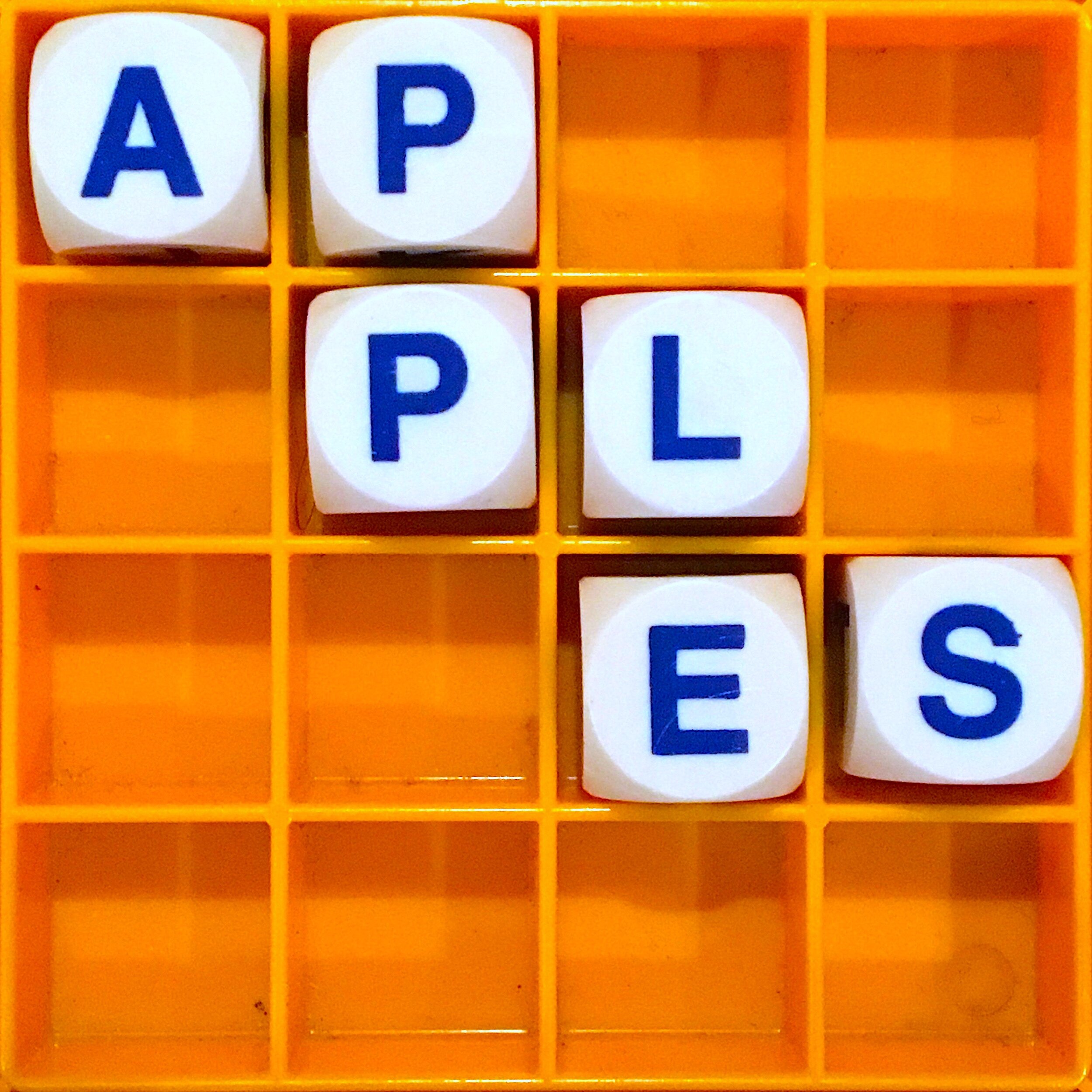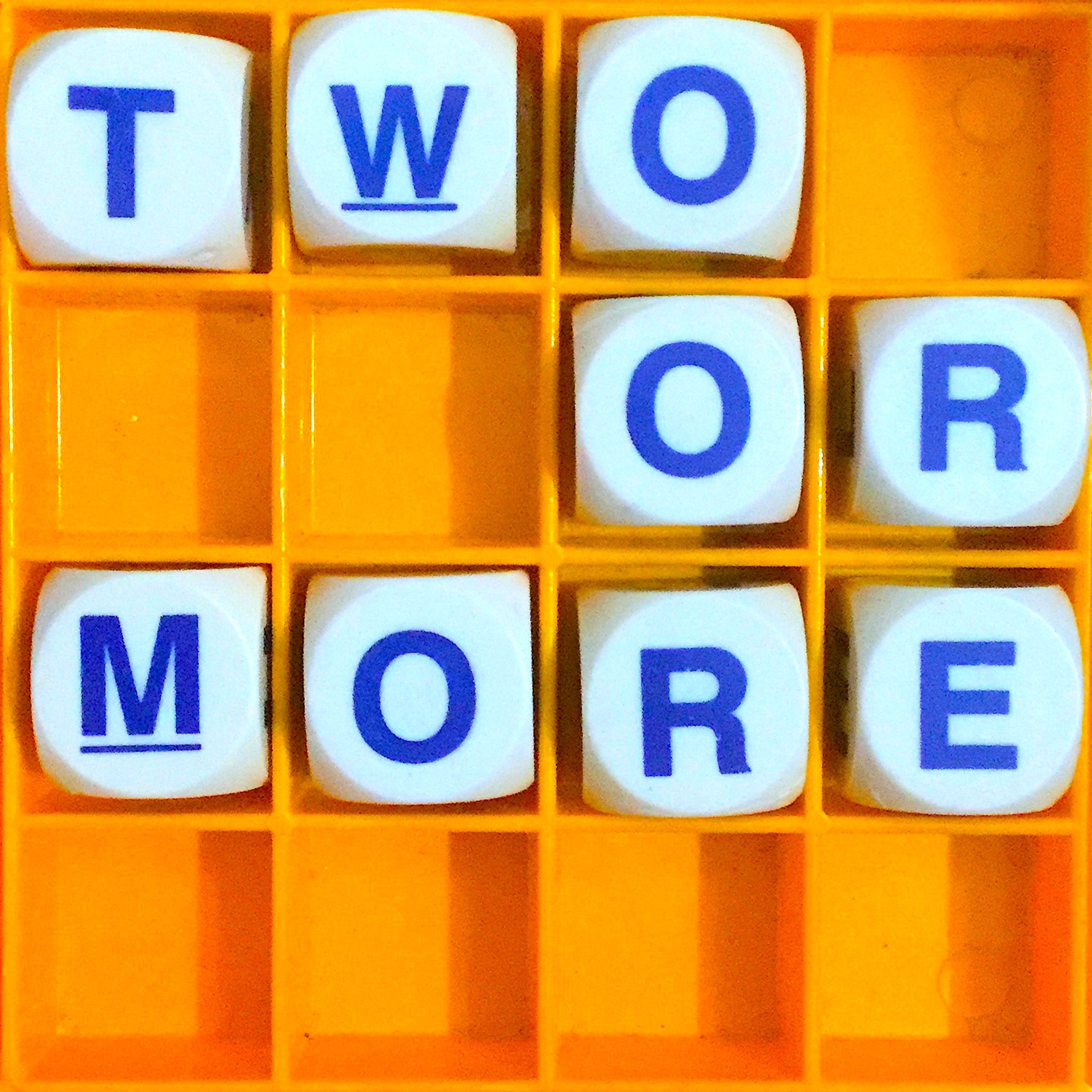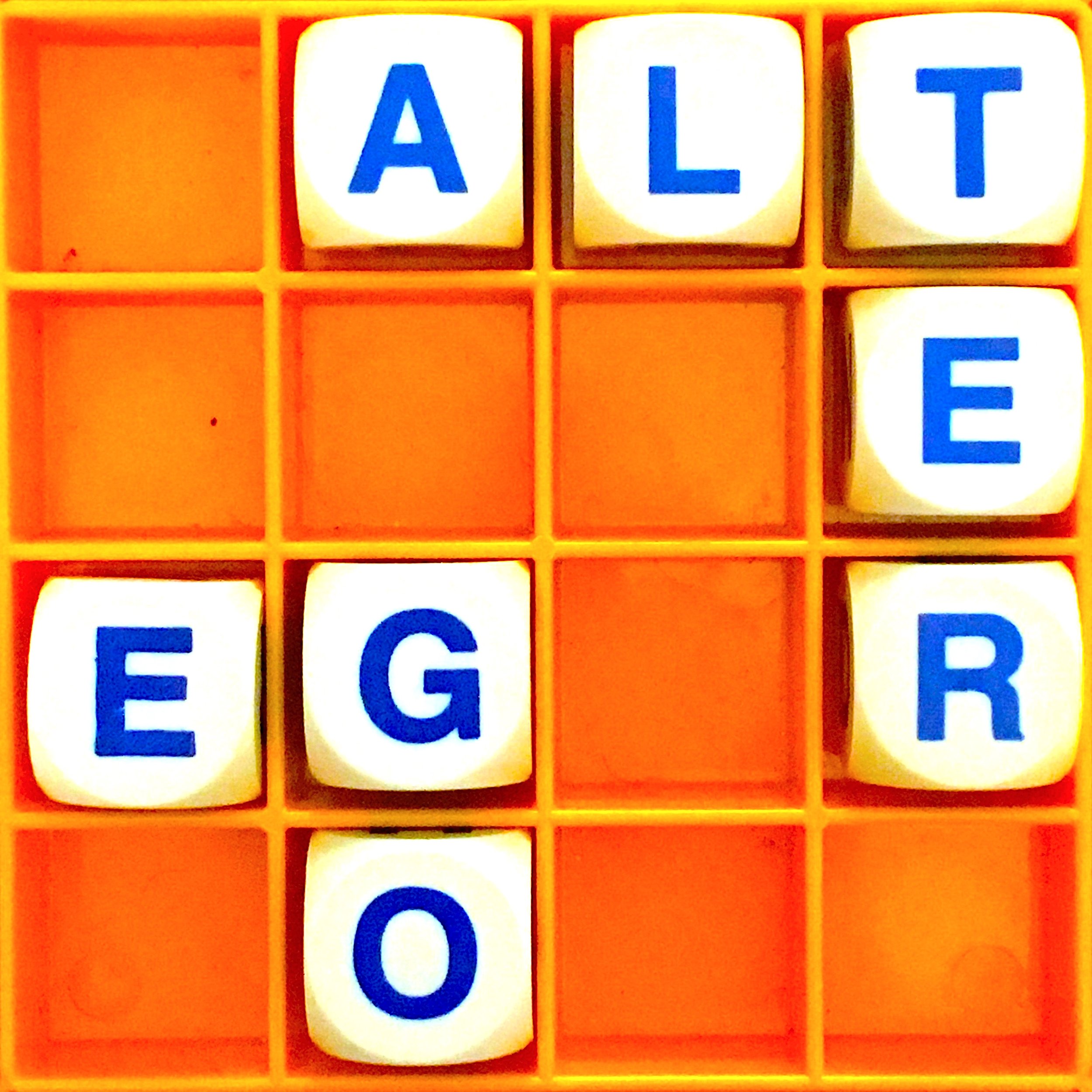DAVID NADELBERG: There's Ronald. Ronald didn't get any epitaph.
HZ: No. Maybe no one liked him.
DAVID NADELBERG: Or, maybe they just couldn't agree.
HZ: Or maybe there's too much to say.
Allusionist 109. East West - transcript
ÉTIENNE ROEDER: There are some words that still exist. There are some expressions you could still tell that these people that the people come from the East or the West. For example, in the Western part, they say ‘Plastik’, and in the Eastern part, I would say they say ‘Plaste’ because there was a company in the East - there was actually just one company in the East that produced plastics and that was called Plaste und Elaste, and because of that, all the people would call plastics ‘Plaste’. And you you could still tell today if someone says ‘Plaste’ and instead of ‘Plastik’ that this person is probably from the Eastern part.
ESTHER-MIRIAM WAGNER: ‘Plastetüte’ - plastic bag. I mean I remember going to school with a plastic bag and being sent home because it was a West German bag. This was a very precious item - you would keep a ‘Plastetüte’ for months and you would reuse it and reuse it and reuse it until it was just tatters. That was a precious object.
MATTHIAS EINHOFF: My son, when he tries to identify if someone is coming from a West German or East German family, he asks them how they call the thing that you put your bathroom things in: East Germans say ‘Waschtasche’ and West Germans say ‘Kulturbeutel’. And that’s the ultimate identifier whether you come from a East or West German family.
Read moreAllusionist 108. Enjoy! - transcript
SARA BROOKE CURTIS: An interesting thing with ‘enjoy’ is that it's become so common, because it’s so normal, so many people do it in all the different restaurants, to such an extent that there are restaurants that you could not say 'enjoy'. That was their biggest pet peeve, was saying ‘enjoy’. And it was massive.
HZ: Why?
SARA BROOKE CURTIS: Because they didn't want their servers to act like robots and they thought that if you said 'enjoy' that people would feel like they're anywhere, and that you're not expressing anything; you're just saying this thing that people say all the time.
HZ: Where does it come from? Is there this cabal like the Pantone colour thing where it's like, "This year everyone will be wearing forest green" - is there that for service vocabulary?
SARA BROOKE CURTIS: Yeah, I think there is. I really do think there is.
Allusionist 107. Apples - transcript
KATHRYN GRANDY: After the name was selected and initially growers and even some people from WSU didn't really like the name Cosmic Crisp.
HZ: Oh, why not?
KATHRYN GRANDY: They said it's like The Jetsons, too futuristic.
HZ: Is that bad?
KATHRYN GRANDY: You know, I love the name; and being futuristic and like The Jetsons I think is pretty cool. But the one thing I've learned being in marketing is everybody is an art director. Somebody wanted to named Cosmic Crisp ‘Sparkle’. And to me, that makes me think of dish soap.
Allusionist 106. Typo Demon - transcript
IAN CHILLAG: Titivillus is the typo demon. I've certainly felt the effects of the demon Titivillus in my life. I've made typos. I had not, until I learned of Titivillus, known that I could blame those typos on a higher power or - is a demon or a lower power?
HZ: I think they originated when an archangel fell from heaven - Lucifer - ao I'd imagine if you're taking the conventional geography of heaven being high, then the demons would be low - but then a typing demon would probably be on the Earth's surface for maximum efficacy.
IAN CHILLAG: Well, Titivillus did - does, maybe - walk the Earth, and what he does is make scribes make errors. So a medieval scribe is doing their work, writing down what they have to in their text, probably a religious text; and Titivillus shows up and does whatever he does and suddenly there are typos in those texts.
HZ: And rather than ascribing that to medieval scribes having very tired hands due to the equipment that they use being exhausting to propel, and they were working in not the brightest light conditions, they were like, "No, it's demons."
IAN CHILLAG: Nope, it was Titivillus the typo demon.
HZ: We're talking about a demon that arrived on the scene of demonism in the 13th century.
IAN CHILLAG: Correct.
HZ: So when we say typos, we really mean handos.
IAN CHILLAG: Yeah yeah. The hando demon.
Read moreAllusionist 105. F'ood - transcript
NANCY FRIEDMAN: The 1920s were kind of a big era for inventive spellings, with V and K: Tasty Kakes with a K, that was the 1920s; Cheez It - C H E E Z I T, 1921 it was. They're cheesy crackers. And. Let's see. There's Cheez Whiz which is a little newer, 1952. These names have been around quite a while.
HZ: And is the idea with things like Cheez Its and Cheez Whiz that it's a cheese-esque product but it isn't technically cheese?
NANCY FRIEDMAN: It's got some dairy, usually some kind of whey product in it; but you're not meant to think that this is - first of all, it's not perishable the way cheese is. So yeah, they do have some family relationship to a cow; but it's not the pure product. We have to remember that there was a time when that was a nifty thing. It was modern and scientific.
HZ: Does anyone go for cheeese, spelled with a triple E, as a variant?
NANCY FRIEDMAN: I haven't seen any brands that are doing that. But now I will look for them.
HZ: You can have that on me.
NANCY FRIEDMAN: Yeah. That would be very internetty, to go for three or four vowels.
Allusionist 104. Words Into Food - transcript
KATE YOUNG: I can travel through what these characters are eating and what they're doing, and travel to places, to countries I've never been, but also to fantastical worlds that I've never been to and versions of this world that feel very different to my own or are 200 years older than this or one hundred years in the future or any of those things
Read moreAllusionist 103. Food Into Words - transcript
FELICITY CLOAKE: It's very nerveracking because people spend money on ingredients, they may be cooking it for a special occasion, they try to impress a date or whatever - there's a lot that can go wrong with food and it's quite a weighty responsibility to be responsible someone's dinner or their birthday cake or whatever; it is a big deal.
RACHEL GREENHAUS: If it's a cookbook for family use, you're going to write it differently than if it's a cookbook for expert bakers and figuring out how to get the recipe that's right for that.
MIMI AYE: It's very different from cooking in real life, I think. Which is weird because you're trying to tell people how to cook the dish.
RACHEL GREENHAUS: It would be really easy to show you, but it's hard to describe in language.
MIMI AYE: Yeah, it's a complete nightmare.
Read moreAllusionist 102. New Rules - transcript
HZ: How are we supposed to learn these rules? Because it's very subtle.
GRETCHEN McCULLOCH: It is very subtle. And I think we learn them from interacting with each other primarily.
HZ: I know that I was never taught through formal channels to emphasise something by repeating letters - omfggggg! - or by putting a full stop or exclamation mark after every 👏 word 👏 in 👏 the 👏 sentence, or by attaching a gif of a panda upending a desk.
GRETCHEN McCULLOCH: We have been doing emphasis in writing for a lot longer than the internet has even been a glimmer in someone's imagination.
Read moreAllusionist 101. Two or More - transcript
MARK WILKINSON: If you talk about something a certain way for enough time over a sustained period of time then it will likely affect the way people perceive that issue, right? So if something is framed in a certain way over a sustained period of time, you always hear the same words for something, then eventually it frames the way you think about it.
HZ: In this case, he’s been studying the use and framing of the word ‘bisexual’.
MARK WILKINSON: I think bisexual - the word bisexual, and the people as well - the word has had a really rough go of it.
Read moreAllusionist 56+12. Joins & Pride - transcript
To celebrate Pride Month, I’m playing two of the Allusionist episodes that have stuck with me the most during the show’s existence.
Read moreAllusionist 100. The Hundredth - transcript
Today there’ll be a celebratory parade of language-related facts that you’ve learned from the Allusionist and I’ve learned from making the Allusionist, so some old facts, some new facts - well, the new facts aren’t recently invented facts, they are established facts, just making their Allusionist debut.
Read moreAllusionist 99. Polari - transcript
HZ: In 1982, Princess Anne, the second child of the Queen of England, Olympic Equestrian, is competing at the Badminton Horse Trials.
PAUL BAKER: She's jumping over all these obstacles and oops, she slips and falls in the water off an obstacle. And all of the photographers rush forward to take a photograph, and she tells them to "naff off". Or "naff orf".
HZ: She's not allowed to drop an F-bomb really, she's a royal.
PAUL BAKER: No, but 'naff' was a Polari word.
HZ: Polari. Just a couple of decades before, it would have been unthinkable that someone like Princess Anne would have used a Polari word, or that she would even have known one.
Read moreAllusionist 98. Alter Ego - transcript
Today: three pieces about alter egos, when your name - the words by which the world knows you - is replaced by another for particular purposes.
How did John Doe come to be the name for a man, alive or dead, identity unknown or concealed in a legal matter? Strap in for a whirlwind ride into some frankly batshit centuries-old English law.
At their first bout of the 2019 season, the London Roller Girls talk about how they chose their roller derby names - or why they chose to get rid of one.
The 1930s and 40s were a golden age for detective fiction, which was also very popular and lucrative. Yet writing it was disreputable enough for authors to hide behind pseudonyms.
Allusionist 97. The Future is Now? - transcript
ROSE EVELETH: I couldn't say this to most people, but you probably understand getting obsessed with a phrase, where you're like, "What is this thing that we say that is weird?" And the one that I've been obsessed with for a while is "The future is now".
HZ: This is Rose Eveleth. She makes the podcast Flash Forward, about how certain scenarios might play out in the future. Which may or may not be now.
ROSE EVELETH: I tend to use it most ironically, where like you see something dumb with technology and you're like "Oh, the future is now!" "Oh, an Internet-connected toaster - the future is now!"
HZ: “Social network for dogs!”
ROSE EVELETH: Exactly. Right. And other people I think use it much more straightforwardly, and much more non-ironically, which is like, "Oh, things are happening so quickly. The future is upon us. Things are changing really rapidly. The future is always happening right in front of us. Technology is amazing." There are two ways to say "the future is now": you can say it optimistically, you could be like, "the future is now! Isn't that cool?" Or you could be like, "the future is now, and we're totally screwed.”
I have a tweetdeck column that is just for that phrase "the future is now", just to watch what people are saying. "School buses with Wi-Fi. The future is now". The U.S. Forest Service,















